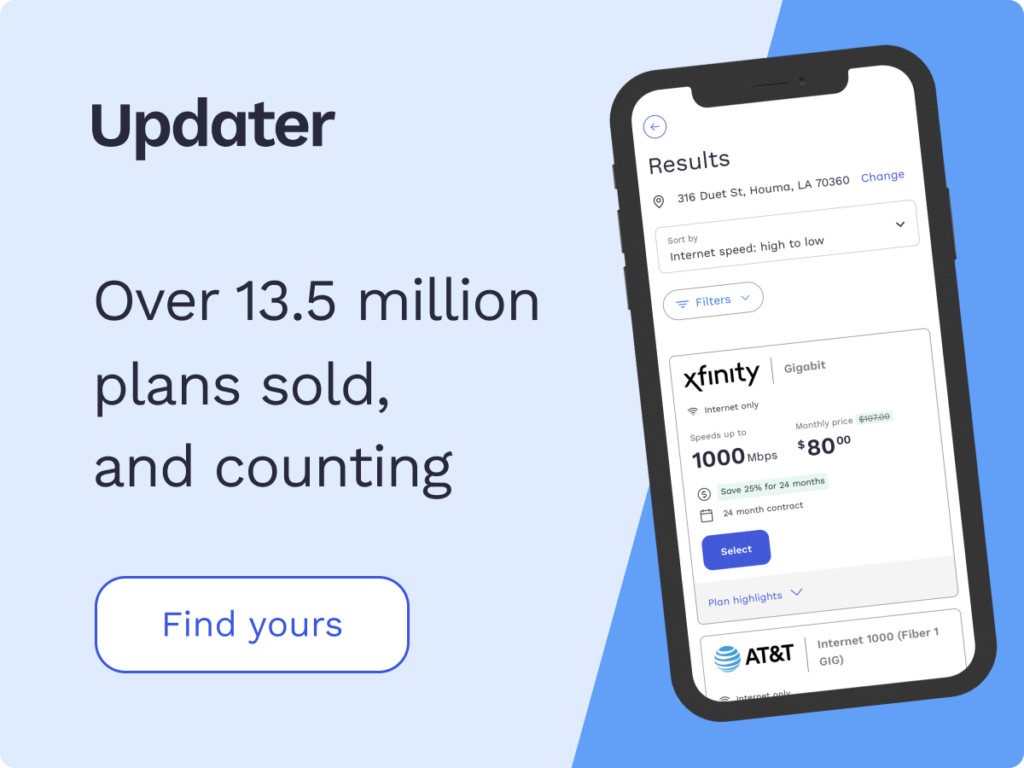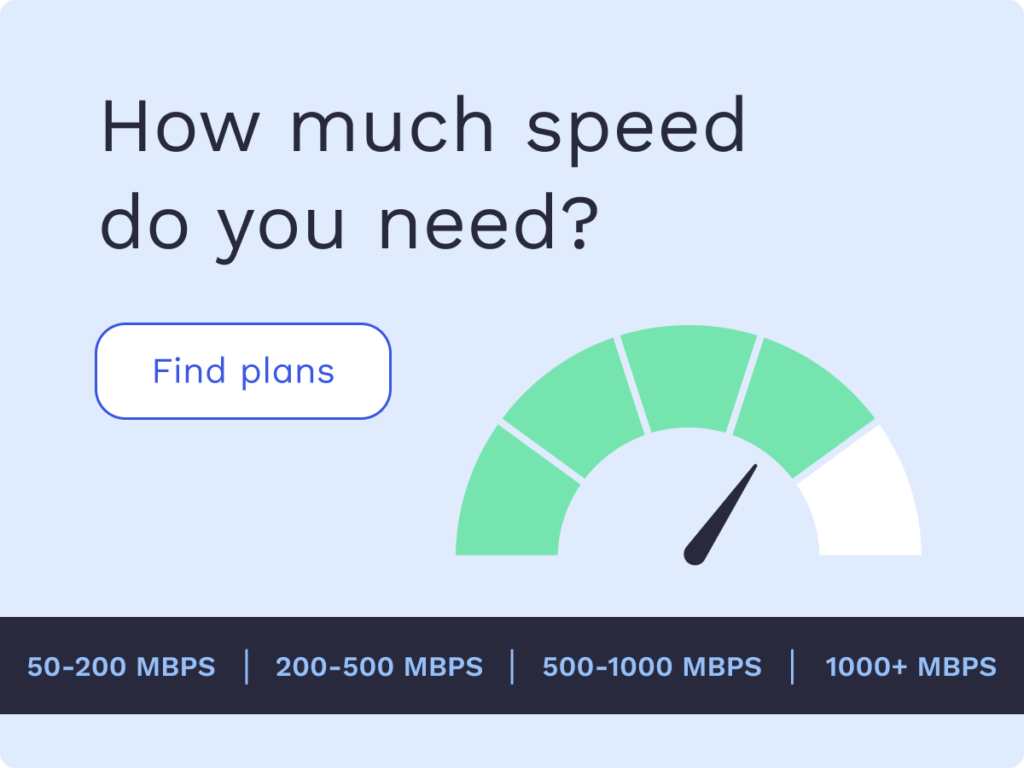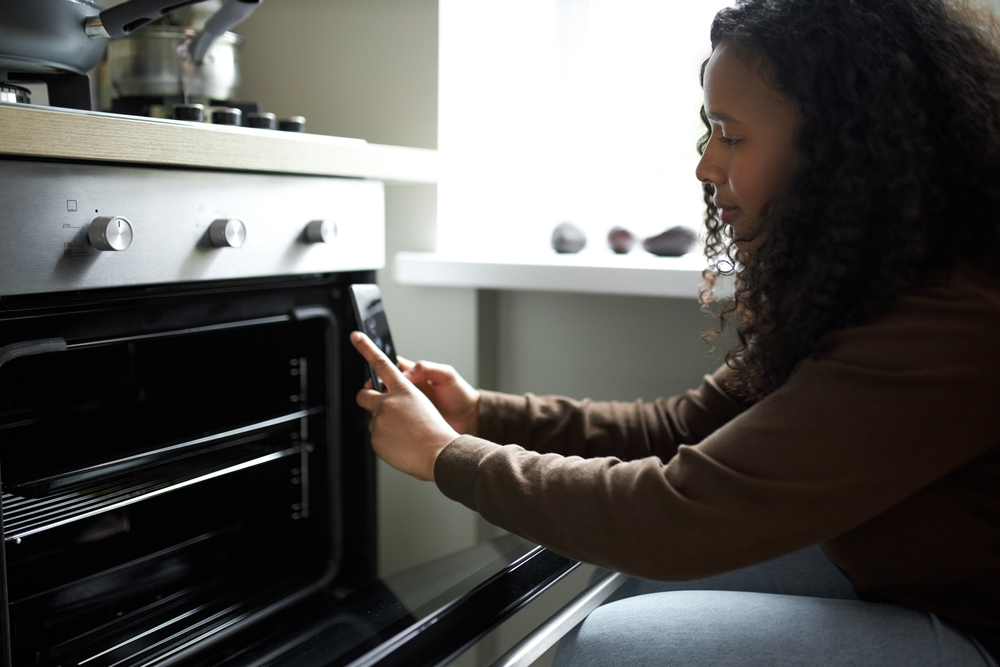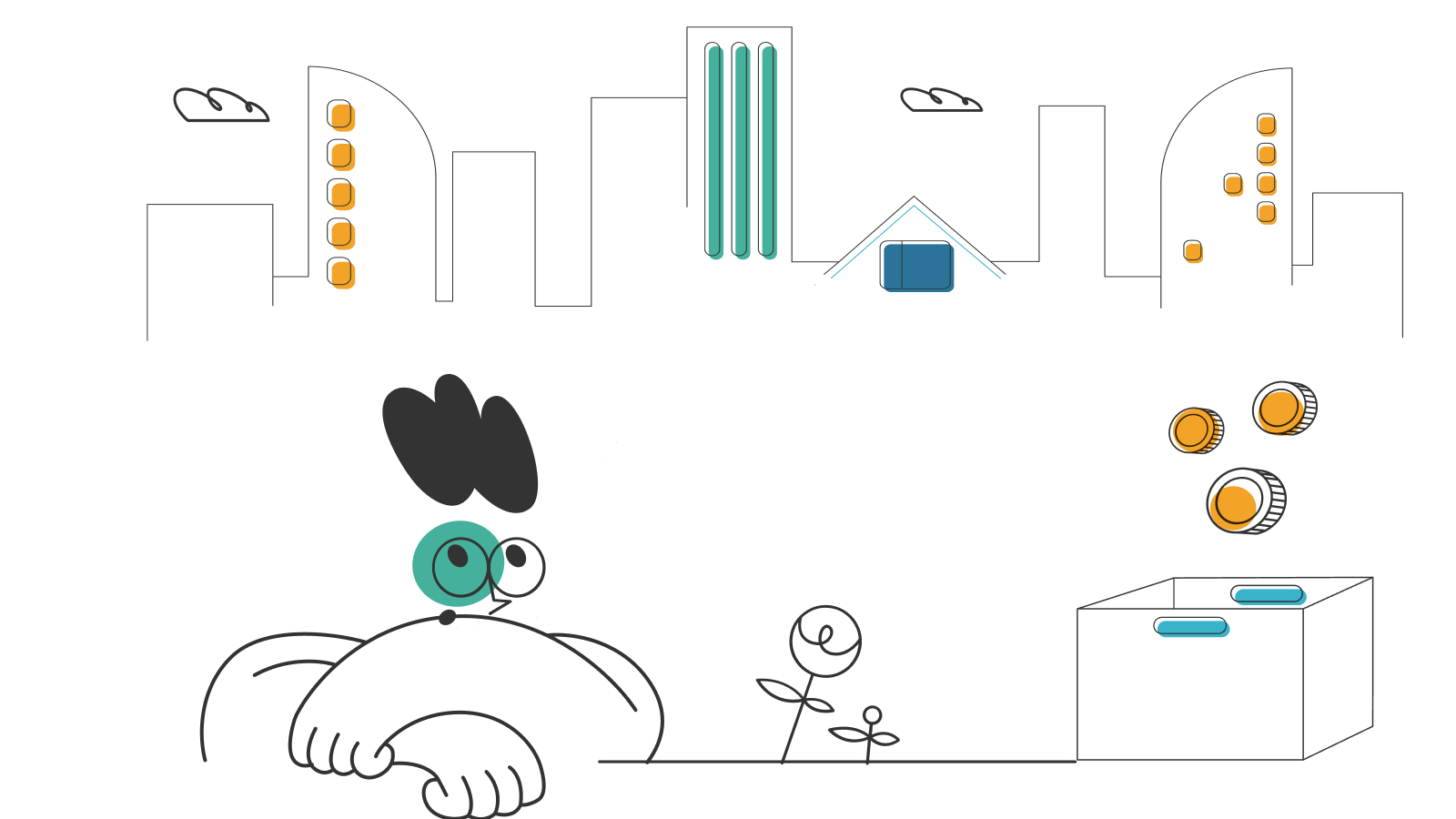5G vs DSL Internet

If you’re researching internet service providers (ISPs), you may come across the terms 5G and digital subscriber line (DSL) and wonder what the difference is between the two types of internet. Simply put, 5G is the latest version of cellular broadband technology, while DSL is an older, wired technology that’s still in use. But there’s much more to know.
Exploring 5G, DSL, the providers available, the differences between these services, and frequently asked questions is an excellent way to know which best fits your home internet needs.
- What is 5G internet?
- What is DSL internet?
- Comparison of 5G and DSL internet
- Frequently asked questions (FAQs)
What is 5G internet?
5G is short for “fifth generation,” and it’s the latest version of broadband cellular network technology. According to Statista, it can transmit data about twice as fast as its predecessor, 4G. It also has better network capacity and reliability. 5G is wireless, so people with this service can use their smartphones or computers to access the internet from anywhere with cellular service.
Who provides this type of service?
You can currently choose from a variety of 5G internet service providers.
T-Mobile
T-Mobile has the largest 5G network in the US, and they recently acquired Sprint, making it even bigger. The network could cover more than 99% of the country by 2023, and currently covers 30 million households. While 5G is mainly for smartphones, you can get home internet service as well.
The Essentials unlimited 5G phone plan is $60/month, and you’ll also get unlimited data for a 3G mobile hotspot. The Magenta plan is $70/month, including taxes and fees. It also gives you 5GB of high-speed Wi-Fi hotspot data. The Magenta MAX costs $85/month, and it includes 40GB of high-speed mobile hotspot data and Netflix. For the first year, you’ll also get Apple TV+ and Paramount+.
A 5G Gateway device that combines the capabilities of a modem router converts the 5G signal to Wi-Fi, letting you use it with the devices in your home. This plan costs $50/month, and there’s no annual contract or data limit. Installation is easy and often takes less than 15 minutes.
AT&T
AT&T is another popular option for 5G service. AT&T serves more than 255 million people, and it’s the same company that Alexander Graham Bell founded after he invented the telephone in 1876. AT&T offers a variety of plans, and also offers unlimited data.
The company’s average 5G download speed is 52Mbps. AT&T Statzone provides real-time sports statistics, and new users get six months of Bookful for free. It has hundreds of electronic versions of children’s books with fascinating three-dimensional and augmented reality features.
The Unlimited Starter plan is $65/month, and it comes with 3GB of hotspot data per month and AT&T’s ActiveArmor app to improve mobile security and block spam calls. The Unlimited Extra plan has 15GB of hotspot data, and costs $75/month. Choose the Unlimited Elite plan for 40GB of hotspot data and HBO Max for $85/month. With all these plans, families who purchase multiple lines get a discount.
You can also choose a prepaid plan. Paying $300 in advance for 12 months provides 8GB per month of high-speed data. Unused data rolls over to the next month, and you can use your phone as a mobile hotspot. If you don’t pay in advance for the entire year, you’ll get 5GB of data per month for $30/month. Unlimited data is $50/month.
With a fixed wireless internet plan for $69.99/month, a cell phone isn’t necessary. An outdoor antenna picks up the 5G signal and sends it to a combined modem and router. This device distributes a Wi-Fi signal to all of the devices in your household.
Verizon
Verizon is also a popular option for 5G service. Its network has about 90 million users. The 5G Home plan costs $50/month, and it uses Verizon’s 5G Ultra Wideband service. If you also have one of many Verizon 5G mobile plans, the price goes down to $25/month. New customers who switch from another service get a $500 credit towards any termination fees. The price for 5G Home is guaranteed for the first two years, and Disney+, Hulu, and ESPN+ are free for the first six months.
The 5G Home Plus Plan costs $70/month, and you’ll get these channels free for an entire year. After the introductory period, you can keep the channels for $13.99/month. The price for 5G Home Plus is guaranteed for three years, and you can back up all your data for free with Verizon Cloud Unlimited. People who also have a Verizon mobile plan can pay $35/month instead of $70/month.
With both plans, a Wi-Fi 6 internet gateway is available at no additional charge. However, you may need to pay a fee if you don’t return it after canceling the service.
What is DSL internet?
DSL stands for digital subscriber line, and it’s a group of technologies that deliver high-speed internet service through existing copper phone lines. It’s available in many rural areas that may not have access to cable or fiber internet service. Many DSL connections require a DSL modem, but some computers have built-in voiceband modems that can take care of this function.
Some DSL plans provide low speeds ranging from 1 to 6Mbps, but you can find providers that offer higher speeds. Some DSL plans are symmetrical, meaning they have similar upload and download speeds. Others have asymmetrical DSL or ADSL with a download speed that’s greater than the upload speed. DSL pricing is usually affordable, and it’s available almost anywhere phone lines have been installed. It transmits signals at a different frequency than home phone service, letting family members talk on the phone while others access the internet.
Who provides this type of service?
Phone companies usually provide DSL service and some notable providers in the US include:
CenturyLink
CenturyLink offers coverage in 36 states. Its DSL provides up to 100Mbps, but it may be slower in some areas. It’s also 99.9% reliable and costs $50/month with no data limits or contracts.
Verizon
Verizon offers DSL coverage in several New England and Mid Atlantic states, along with Washington, D.C. Its DSL plan also comes with home phone service, and costs $74.99/month. The price is guaranteed for the first month, and the speed depends on your location. You could get speeds of up to 15Mbps.
Earthlink
Earthlink uses infrastructure from other ISPs to offer internet. It provides three DSL packages—$59.99/month for 100Mbps, $69.99/month for 200Mbps, and $89.99/month for 500Mbps.
Comparison of 5G and DSL internet
DSL and 5G are both popular types of internet service, and they have different pros and cons. Here are some of the characteristics you can think about while deciding which type of service you want.
Availability
For now, 5G coverage is mostly limited to major cities. However, the infrastructure for this type of service is expanding, and it will eventually be available in many parts of the country. DSL is available in most parts of the US, but in urban areas you may get a better deal on fiber, cable, or 5G internet service.
Speed
In some areas, 5G and DSL can both reach 100Mbps or more. However, speeds for both types of services could be slower, depending on your location.
Latency
Speed isn’t the only thing that impacts the quality of an internet connection. Latency is the amount of time needed between sending and receiving information. For example, someone on a video call with high latency may not be able to see the other person in real-time. They might have to pause before replying.
Lower latency improves gaming, video conferencing, and more. 5G is a newer technology with much lower latency than DSL. However, in many areas, both kinds of service work well for gaming, video calls, and other activities that require lower latency.
Equipment
People use 5G signals most with smartphones. With 5G service, you can create a mobile hotspot with just a smartphone. Some ISPs also offer gateways or routers to provide Wi-Fi to your entire home. With DSL, you need a DSL modem or combination modem and router in most cases. Some computers have this capability built-in.
Frequently asked questions (FAQs)
Will 5G work with a 4G phone?
5G service won’t work with a 4G LTE phone because they use different frequencies to transmit information. However, someone with a 5G phone can use a 4G network. Many providers recommend that people with 4G phones upgrade as soon as possible to avoid gaps in service.
Is Wi-Fi the same as 5G?
Wi-Fi uses a different technology than 5G. That’s why 5G home internet services need a modem and router to provide Wi-Fi internet access. You may occasionally see a modem with a 5G label, but this likely refers to the 5GHz Wi-Fi frequency, not 5G.
Is DSL the same as dial-up internet service?
Telephone companies provide both types of service through phone lines, but DSL can be up to 200 times faster than dial-up. The maximum dial-up speed is about 56Kbps, and DSL can reach more than 100Mbps.
What is a DSL filter?
A DSL filter—also called a DSL splitter or a microfilter—is a small device that connects to landline phones, fax machines, and other devices. It filters out any signals that could interfere with your DSL connection. However, you may not need a DSL filter if your family doesn’t make calls or send faxes often.
Is DSL obsolete?
While fiber, 5G, and many other types of internet service compete with DSL today, the service is not obsolete. Many ISPs still offer it, and it’s the most affordable option for many rural customers.
*Pricing varies by location and availability. Speeds may vary. All prices subject to change; for current pricing and availability visit our internet service page. Prices as of 5/19/22.
Disclosure | Updater articles are based on our own data and research, independent from partner relationships. We are not compensated by partners for information and opinions presented here. Our Editorial Terms of Service can be found here.














